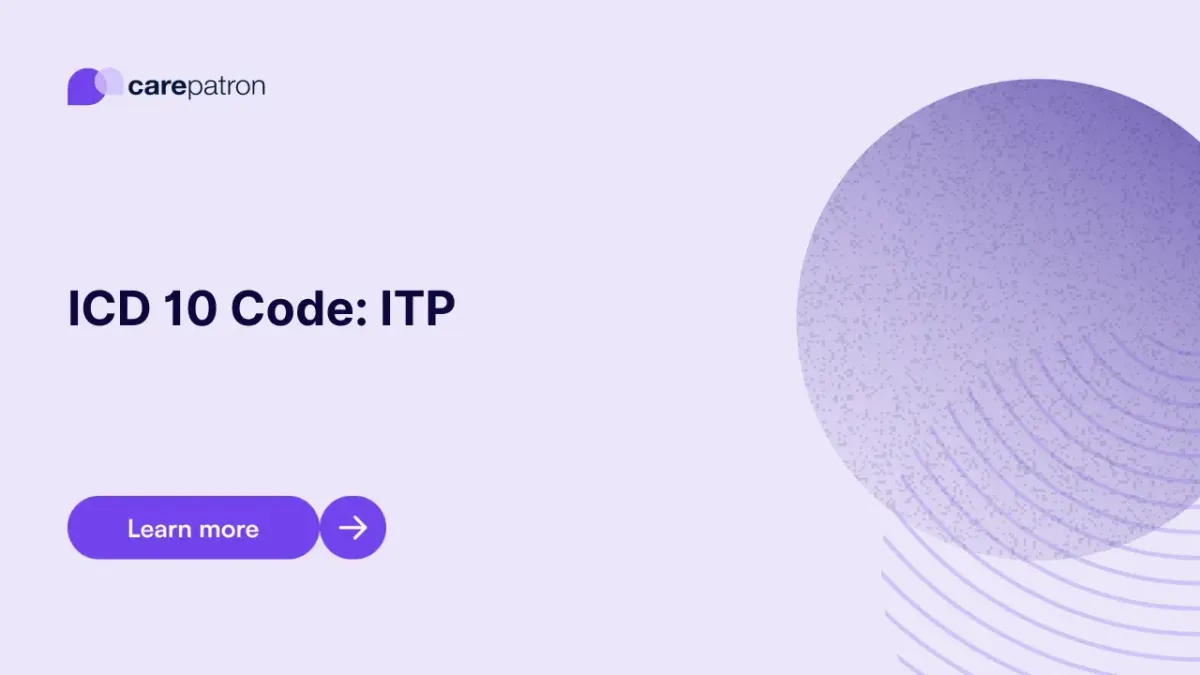
ITP ICD-10-CM Codes | 2023
Explore ICD-10-CM codes for Immune Thrombocytopenic Purpura (ITP) in 2023. Learn about common codes, billable statuses, and gain clinical insights in this comprehensive guide.
Use Code
Commonly asked questions
ITP is an autoimmune disorder, which means it occurs when the immune system mistakenly targets and destroys platelets. The exact cause is often unknown.
Treatment for ITP depends on the severity of symptoms. It may include medications to suppress the immune system, steroids, IVIG, or, in severe cases, spleen removal (splenectomy) to reduce platelet destruction.
Yes, ITP can be chronic, lasting for an extended period. However, the course of the disease varies from person to person. Some individuals may have short-term or acute ITP, while others may experience a chronic form. Regular medical monitoring and treatment can help manage the condition.
EHR and practice management software
Get started for free
*No credit card required
Free
$0/usd
Unlimited clients
Telehealth
1GB of storage
Client portal text
Automated billing and online payments
